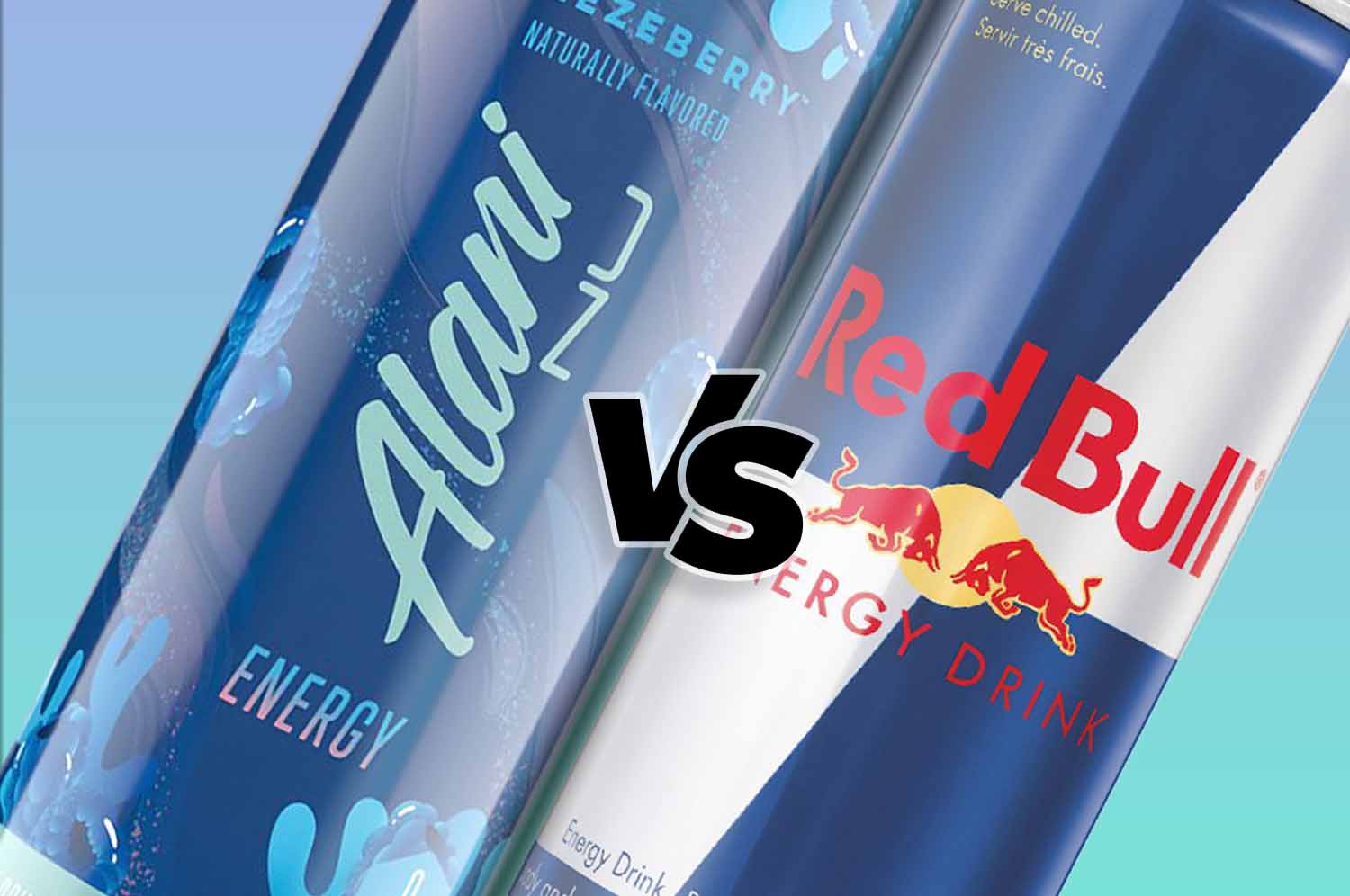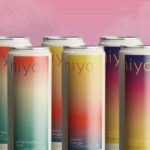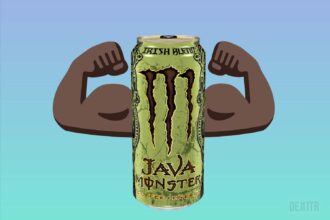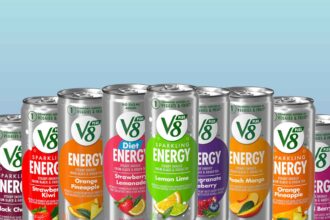Everyone loves an energy boost to get them through a tough workout or an early morning meeting. Countless energy drinks can be seen on store shelves, and choosing one can make your head spin.
You want a reputable brand with great energy and quality ingredients. Alani Nu and Red Bull are two popular options. But how do you know which will give you the energy to get through the day?
Key Takeaways:
Some of the most significant differences between Red Bull and Alani Nu are the sugar content, caffeine, and the quality of the ingredients. Alani Nu is sugar-free, boasts 200mg of caffeine, and is made from natural ingredients. On the other hand, Red Bull has a high amount of sugar, 80mg of caffeine, and contains artificial ingredients.
If you want to know more about the difference between these two energy drink brands, this article was made for you. We cover these two brands’ nutrition facts, ingredients, and more. By the end of this article, you won’t have any doubt about which is best for you!
Red Bull vs. Alani Nu: Nutrition Comparison
| Comparison | Alani Nu Breezeberry | Red Bull |
| Serving Size | 12 oz | 8.4 fl. Oz |
| Calories | 15 | 110g |
| Fat | 0g | 0.2g |
| Caffeine | 6 g | 80 mg |
| Sodium | 200mg | 98 mg |
| Carbohydrates | 6g | 28g |
| Sugar | 0g | 26g |
| Niacin | 110% DV | 100% DV |
| Potassium | 32mg | 8 mg |
| Vitamin B6 | 110% DV | 250% DV |
| Vitamin B12 | 110% DV | 80% DV |
| Pantothenic Acid | 110 % DV | 50% DV |
Red Bull vs. Alani Nu: Ingredients
| Alani Nu Energy Drink | Red Bull |
| Carbonated Water | Carbonated Filtered Water |
| Sodium Citrate | Sucrose |
| Erythritol | Glucose |
| Taurine | Taurine |
| Citric Acid | Citric Acid |
| Natural Flavor | Sodium Bicarbonate |
| Caffeine | Magnesium Carbonate |
| L Theanine | Caffeine |
| Sucralose | Niacinamide (Vitamin B-3) |
| Panax Ginseng Root Extract | Calcium D Pantothenate (Vitamin B-6) |
| Potassium Sorbate (preservative) | Pyridoxine HCl |
| Sodium Benzoate (preservative) | Natural Flavors |
| Sodium Chloride | Pyridoxine Hydrochloride (Vitamin B-6) |
| L-Carnitine Tartrate | Cyanocobalamin (Vitamin B-12) |
| Niacinamide (Vitamin B-3) | Natural Flavors |
| Gum Acacia | Natural Colors |
| Guarana Seed Extract | |
| Inositol | |
| Glucuronolactone | |
| Acesulfame Potassium | |
| Calcium D Pantothenate (Vitamin B-6) | |
| Cyanocobalamin (Vitamin B-12) | |
| Biotin |
Red Bull: Pros and Cons
Pros:
- Easy to find at grocery or convenience store
- Provides a great mental boost
- Large selection of flavors
Cons:
- Lower in caffeine
- More expensive overall
- Full of sugar and calories
- Made with some artificial ingredients
- Not Vegan or Keto friendly
Alani Nu: Pros and Cons
Pros:
- No sugar
- High in caffeine
- Designed for a pre-workout boost
- Made with natural ingredients
- Great flavors
Cons:
- Contains artificial sweeteners
- Not easy to find at stores
Red Bull vs. Alani Nu: Which Tastes Better?
While this is all up to personal preference, Alani Nu has many flavors that are just plain yummy! From Watermelon Wave to Mimosa, you can’t go wrong with any Alani Nu flavor. Some people have said they are too overwhelming, but to each their own.
Red Bull is known for having an almost sour taste which is off-putting to many people. To combat this, Red Bull does have different flavors like Coconut, Fig Apple, Tropical, and Watermelon, just to name a few. Odds are you will find a flavor you enjoy (even if you have to try a few).
Red Bull vs. Alani Nu: Which is Better for a Workout?
While Red Bull is effective for a pre-workout boost, Alani Nu is designed to be a pre-workout drink. It doesn’t have any additives that are known to cause a caffeine crash. Only naturally derived caffeine is used in Alani Nu.
Red Bull is made with synthetic caffeine, which is absorbed into the bloodstream quicker than natural caffeine, causing the inevitable “crash.”
Overall, Alani Nu is the better choice pre-workout, but Red Bull will do in a pinch.
Red Bull vs. Alani Nu: Caffeine Content
Even though most people need caffeine to kick off their day, it is important to be mindful of how much your intake is. According to the FDA, healthy adults should consume no more than 400mg daily.
An 8.4-ounce can of Red Bull contains 80mg of caffeine, while the 12-ounce can of Alani Nu has 200mg. Red Bull does come in larger sizes and therefore has more caffeine. To compare, a 12-ounce Red Bull has 114mg, which is still a lot less than the 200mg in Alani Nu.
Overall, if “the more caffeine, the better” is your motto, Alani Nu is the drink for you!
Final Thoughts
No matter which of the two energy drink you choose, you will no doubt get that extra boost of energy you need to get through the day. Alani Nu is your best bet if you prefer a fruity and delicious energy drink full of natural caffeine. Red Bull will suit you well if you just need energy and don’t mind the added sugar.
FAQs
Is Alani Healthier than Red Bull?
Yes, Alani Nu is a healthier alternative when compared to Red Bull, Monster, and many other brands. This is due to the lack of sugar and only a few calories. Alani Nu also contains L-Theanine, an amino acid derived from tea leaves. It can help with your mood and balance out the negative effects of caffeine.
Of course, moderation is always the healthiest choice. Too much energy drink can cause insomnia, dehydration, headaches, anxiety, and even become addictive.
What Makes Alani Nu Different from Other Energy Drinks?
Alani Nu contains no sugar. It also depends on natural caffeine for the energy boost. This prevents the dreaded caffeine crashes popular with synthetic caffeine found in Red Bull.
Also, Alani Nu was designed to be a pre-workout supplement. It contains many natural ingredients which are healthier for you when compared to artificial ones.
What is the Main Difference Between Red Bull and Alani Nu?
The biggest difference is the caffeine content. Alani Nu has more caffeine than Red Bull (114mg vs. 200mg per 12 oz).
Another major difference is the sugar content. Red Bull has 37g per 12oz, while Alani Nu has none. This makes it a good alternative for those who need to watch their sugar intake.













